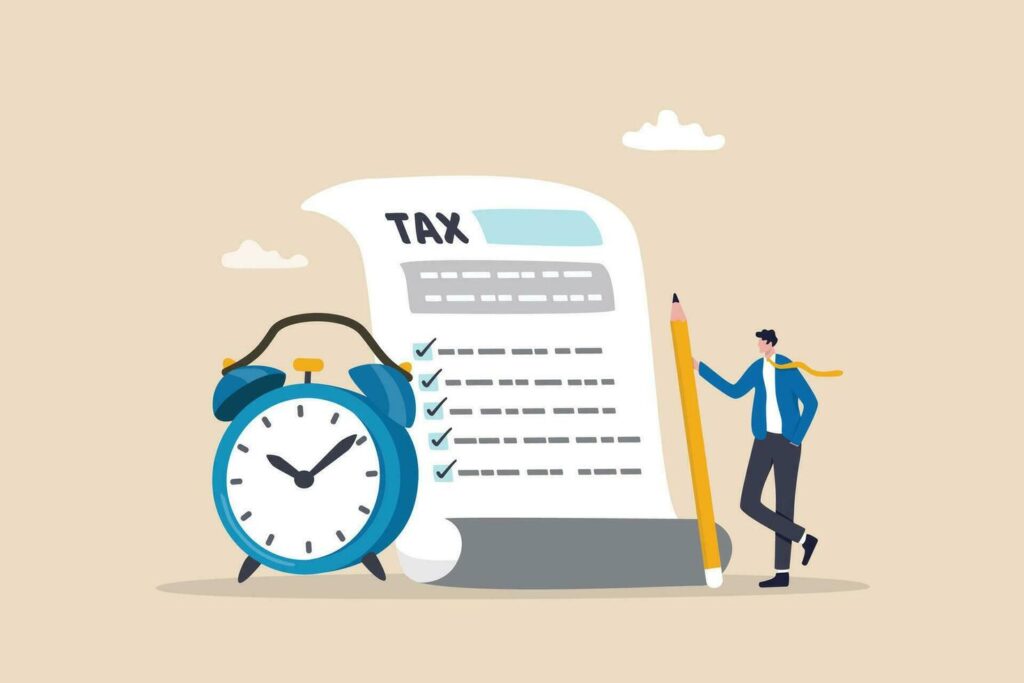Tax planning is an essential part of financial management that often gets overlooked. However, understanding the basics of tax planning can make a significant difference in your financial success. In this comprehensive planning guide, we will explore the importance of tax planning, key terms and concepts to be aware of, and various strategies to help you develop a solid tax plan tailored to your specific needs and goals.
Understanding the Basics of Tax Planning
Tax planning refers to the process of evaluating and optimizing your financial situation to minimize tax liability by tax planner. By taking advantage of available tax deductions, credits, and exemptions, individuals and businesses can legally reduce the amount of taxes they owe. This allows them to keep more of their hard-earned money and allocate it towards their financial goals.
When it comes to tax planning, there are various strategies and techniques that can be employed. These strategies are designed to help individuals and businesses navigate the complex world of taxation and ensure that they are making the most of the available opportunities to minimize their tax burden.
The Importance of Tax Planning
Effective tax planning is crucial because it allows you to have better control over your finances and maximize your savings. When you have a well-thought-out tax strategy in place, you can anticipate and plan for tax obligations, avoiding any last-minute surprises and penalties.

One of the key benefits of tax planning is the ability to reduce your tax liability. By taking advantage of deductions, credits, and exemptions, you can legally lower the amount of taxes you owe. This can result in significant savings over time, allowing you to allocate those funds towards other financial goals.
Additionally, by minimizing your tax burden, you have more flexibility to invest in growth opportunities or save for future financial milestones. Whether it’s starting a new business, expanding an existing one, or saving for retirement, having extra funds available can make a significant difference in achieving your financial objectives.
Key Terms and Concepts in Tax Planning
Before diving into the strategies, let’s go over some key terms and concepts related to tax planning. Understanding these will help you navigate the complexities of tax planning more efficiently:
- Tax Deductions: Deductions are expenses that can be subtracted from your taxable income, reducing the amount of income that is subject to tax.
- Tax Credits: Unlike deductions, tax credits directly reduce the amount of tax owed. They are applied to the tax liability instead of the taxable income.
- Tax Exemptions: Exemptions are amounts that are excluded from your taxable income. They can be claimed for yourself, dependents, or specific circumstances.
By understanding these key terms and concepts, you can start to see the various opportunities available for minimizing your tax liability. Implementing effective tax planning strategies can help you optimize your financial situation, maximize your savings, and achieve your long-term financial goals.
Developing a Tax Strategy
Now that you have a basic understanding of tax planning, it’s time to develop a tax strategy that aligns with your financial goals. The following steps will guide you through the process:
Identifying Your Tax Goals
Start by identifying your tax goals. What do you hope to achieve through tax planning? Are you aiming to reduce your overall tax liability, maximize your tax savings, or ensure compliance with tax laws? Knowing your objectives will help you tailor your tax planning efforts accordingly.
Reducing your overall tax liability can free up more funds for other financial goals, such as saving for retirement or investing in your business. Maximizing your tax savings can help you keep more money in your pocket, allowing you to allocate those funds towards other areas of your life. Ensuring compliance with tax laws is crucial to avoid penalties and legal issues.
By clearly defining your tax goals, you can create a tax strategy that focuses on achieving those specific objectives.
Assessing Your Current Tax Situation
Next, assess your current tax situation. This involves reviewing your income sources, deductions, and credits. Consider consulting with a tax professional or using tax software to ensure accuracy. By understanding your current tax profile, you’ll be better equipped to identify areas where you can make adjustments to optimize your tax situation.
When assessing your income sources, consider all the different streams of revenue you have, such as salary, investments, rental income, or self-employment earnings. Understanding the composition of your income can help you identify potential tax planning opportunities.

Reviewing your deductions and credits is equally important. Deductions can include expenses related to your business, education, or home ownership, while credits can provide direct reductions in your tax liability. By examining these factors, you can determine if there are any deductions or credits you may be eligible for but have not been taking advantage of.
Assessing your current tax situation also involves analyzing any changes in your life that may impact your taxes. For example, if you recently got married, had a child, or started a new job, these events can have tax implications. By understanding how these changes affect your tax situation, you can make informed decisions to optimize your tax strategy.
Remember, tax planning is an ongoing process. As your financial situation evolves, so should your tax strategy. Regularly reviewing and adjusting your tax plan will help ensure that you are maximizing your tax benefits and minimizing your tax liability.
Tax Planning for Different Income Levels
Tax strategies can vary depending on your income level. Let’s explore some considerations for low-income individuals, middle-income earners, and high-income individuals:
Tax Strategies for Low-Income Individuals
Low-income individuals can benefit from tax credits such as the Earned Income Tax Credit (EITC) and the Child Tax Credit. These credits are designed to provide financial assistance to low-income families and individuals, helping to alleviate the burden of taxes. The EITC, in particular, is a refundable credit that can result in a significant tax refund for eligible taxpayers.
In addition to tax credits, low-income individuals may qualify for certain deductions and exemptions that can further reduce their tax burden. For example, they may be able to deduct expenses related to education, health care, and housing. By carefully tracking and documenting these expenses, low-income individuals can maximize their deductions and potentially lower their overall tax liability.
Tax Planning for Middle-Income Earners
Middle-income earners should focus on maximizing deductions and credits while taking advantage of tax-advantaged accounts. One popular tax-advantaged account is an employer-sponsored retirement plan, such as a 401(k) or 403(b). Contributions made to these plans are typically tax-deductible, meaning they can reduce taxable income. Additionally, any earnings within the account grow tax-deferred until withdrawal, allowing for potential tax savings in the long run.
Another tax-advantaged account that middle-income earners can consider is a Health Savings Account (HSA). HSAs are available to individuals with high-deductible health insurance plans and offer a triple tax advantage. Contributions to an HSA are tax-deductible, earnings within the account grow tax-free, and withdrawals for qualified medical expenses are also tax-free. By contributing to an HSA, middle-income earners can lower their taxable income and save for future medical expenses.
Advanced Tax Strategies for High-Income Individuals
High-income individuals often have more complex tax situations due to their higher earnings and potential investment income. To optimize their tax planning, high-income individuals may consider strategies such as tax deferral through retirement plans, charitable contributions, or investment in tax-efficient assets.
One strategy commonly used by high-income earners is maximizing contributions to retirement plans, such as a traditional IRA or a SEP IRA. By contributing the maximum allowable amount to these plans, high-income individuals can reduce their taxable income for the current year and potentially lower their overall tax liability. Additionally, they can benefit from the tax-deferred growth of these retirement accounts.

Charitable contributions can also play a significant role in tax planning for high-income individuals. By donating to qualified charitable organizations, they can not only support causes they care about but also potentially reduce their taxable income. It’s important for high-income individuals to keep detailed records of their charitable contributions to ensure they can claim the appropriate deductions on their tax returns.
Investing in tax-efficient assets, such as municipal bonds or tax-managed funds, can also be a tax strategy for high-income individuals. These investments are structured in a way that minimizes the tax impact, allowing investors to potentially earn tax-free or tax-efficient income. However, it’s crucial for high-income individuals to consult with a qualified tax professional before implementing such strategies to ensure compliance with tax laws and regulations.
In conclusion, tax planning is essential for individuals at every income level. By understanding the specific tax strategies available to them, low-income individuals, middle-income earners, and high-income individuals can optimize their tax situations and potentially reduce their overall tax liability.
Tax Planning for Businesses
Businesses also have unique tax planning considerations. Let’s explore some key aspects:
Tax Considerations for Small Businesses
Small businesses can benefit from tax deductions related to business expenses, employee benefits, and depreciation. By keeping meticulous records and working with a knowledgeable tax professional, small business owners can optimize their tax situation.
Corporate Tax Planning Strategies
Corporations have additional tax planning strategies at their disposal. This may include utilizing tax credits for research and development, exploring international tax planning options, or managing earnings to minimize the corporate tax liability.
Retirement and Tax Planning
Retirement planning and tax planning go hand in hand. Here are some important considerations:
Tax-Advantaged Retirement Accounts
Contributing to tax-advantaged retirement accounts, such as Traditional IRAs, Roth IRAs, and 401(k) plans, can provide immediate tax benefits and help you grow your retirement savings tax-free. It’s crucial to understand the contribution limits, withdrawal rules, and eligibility requirements for these accounts.
Tax Implications of Retirement Withdrawals
When you start withdrawing funds from your retirement accounts, you need to consider the tax implications. Depending on the type of account and the timing of withdrawals, you may owe taxes on the distributed funds. Planning your withdrawals strategically can help minimize your tax liability while ensuring a steady income stream in retirement.
By following the smart strategies outlined in this comprehensive tax planning guide, you can proactively manage your tax obligations and optimize your financial situation. Remember, tax planning is an ongoing process that requires attention to detail and regular reviews. Consider seeking guidance from a qualified tax professional to ensure you make the most of your tax planning efforts.
More to read: The Year-Round Benefits of Expert Tax Planning





